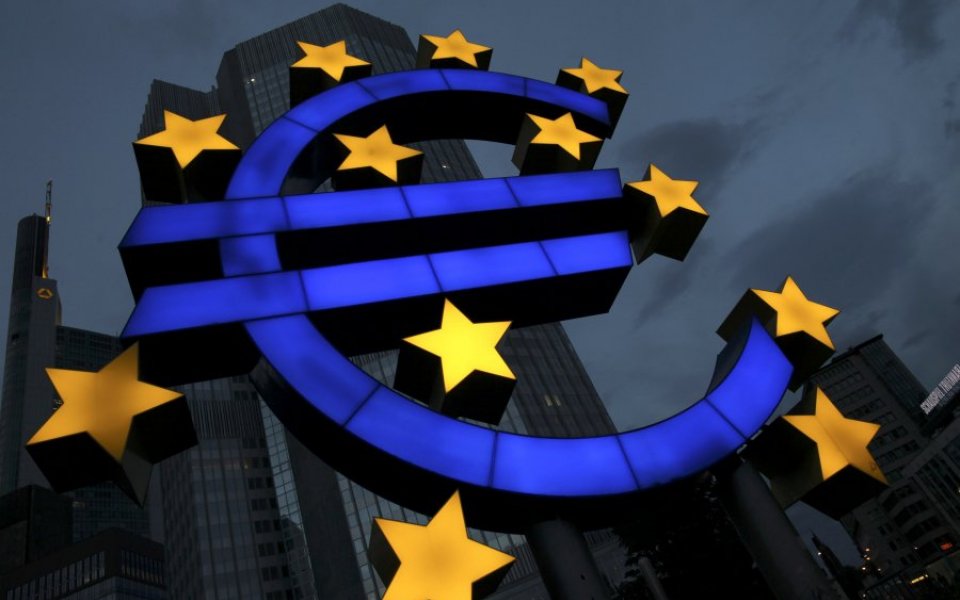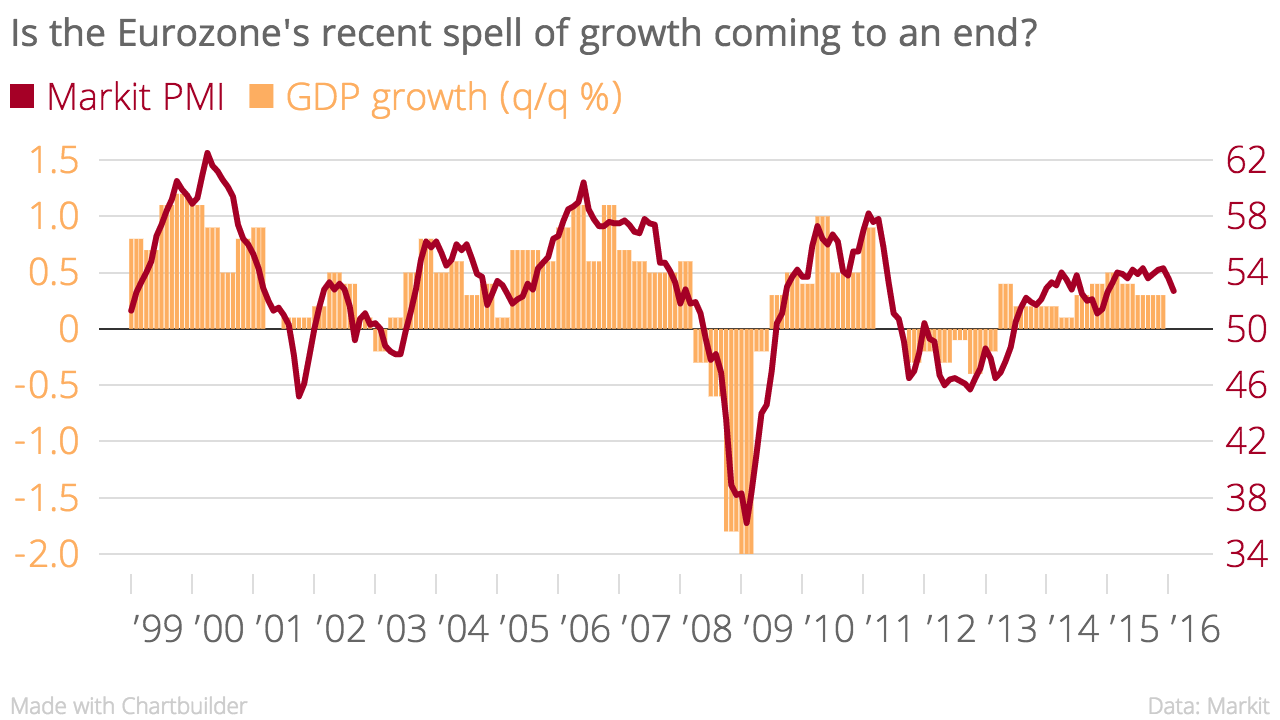Eurozone economy growing at its slowest pace for over a year, according to business survey

A gauge of economic growth in the Eurozone fell to a 13-month low this month.
Markit's flash purchasing managers' index (PMI) – compiled from a survey of businesses – dropped to a score of 52.7 in February from 53.6 in January, according to figures released this morning.
Scores above 50 indicated growth, with February's lower score implying slower growth. The flash PMI is an early estimate, with the final PMI for February scheduled to be released at the beginning of next month.
The survey also revealed signs that the Eurozone's below-target inflation could be on course to continue. Markit said:
Deflationary pressures meanwhile intensified. Average prices charged by companies for their goods and services fell at the steepest rate for a year as firms competed to boost sales.
The drop in the PMI and slower implied growth and inflation could encourage more stimulus measures from the European Central Bank (ECB) at its March meeting. The ECB targets inflation at just below two per cent but it is currently hovering around zero.
ECB chief Mario Draghi has said the current policies of a negative deposit rate and €60bn (£46.8bn) a month of asset purchases would be reviewed next month, when the ECB's new economic projections are published.
“Disappointing PMI survey data for February greatly increases the odds of more aggressive stimulus from the ECB in March," said Markit chief economist Chris Williamson.
“Not only did the survey indicate the weakest pace of economic growth for just over a year, but deflationary forces intensified.
"Economic growth is likely to slow below 0.3 per cent in the first quarter unless we see a sudden uplift in March, which on the basis of the forward-looking components of the PMI seems unlikely. In fact, growth looks more likely to slow further than accelerate."
